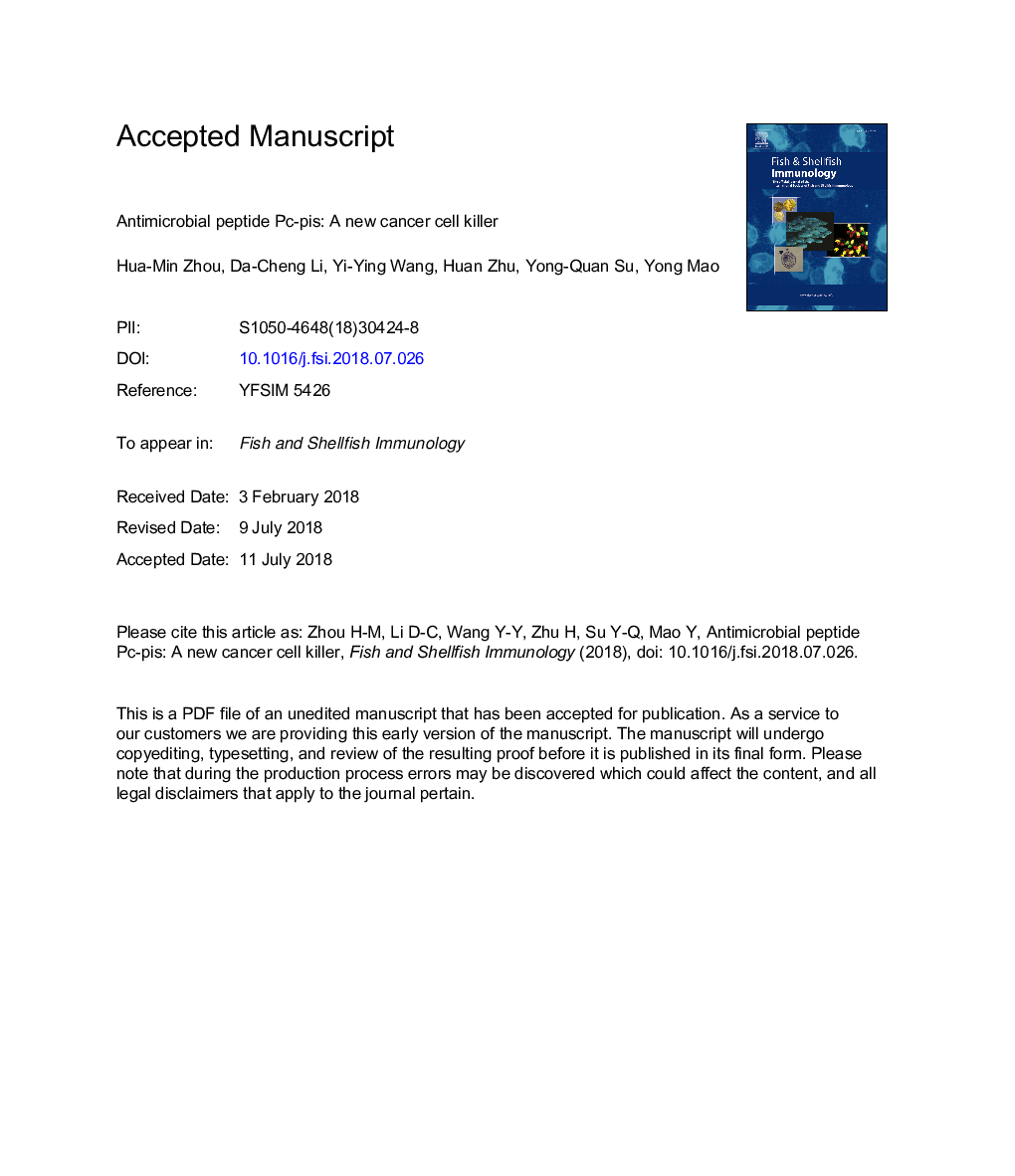| Article ID | Journal | Published Year | Pages | File Type |
|---|---|---|---|---|
| 8498169 | Fish & Shellfish Immunology | 2018 | 21 Pages |
Abstract
The antimicrobial peptide (AMP) Pc-pis, a member of Piscidin family from ï¬sh with cationic amphipathic structure, has potent, broad-spectrum antimicrobial activity against bacteria, fungi and parasite, and lower hemolytic activity. Here, we reported that Pc-pis had antitumor activity. Pc-pis killed tumor cells including HeLa cells. Previously, it is reported that AMPs bind to the membrane of bacteria to generate the pores to lyse the target cells, and similarly, the cancer cell incorporate phosphatidyl-serine on the outer leaflet of plasma membrane so that amphipathic AMPs can bind to the membrane to kill it. Our data supported that notion because suitable size osmo-protectant PEG4000 prevented HeLa cells from death induced by Pc-pis. Additionally, Fusion protein GFP-Pc-pis accumulated mainly at the nuclear membranes of HeLa cells and positive net charge in modified Pc-pis intensified but negative net charges eliminated this effect. Thus, positively charged residues were important for its affinity to the membrane. Our work will lay the groundwork of the development of Pc-pis antitumor activity.
Related Topics
Life Sciences
Agricultural and Biological Sciences
Aquatic Science
Authors
Hua-Min Zhou, Da-Cheng Li, Yi-Ying Wang, Huan Zhu, Yong-Quan Su, Yong Mao,
